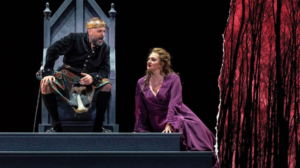Is It Worth the Read? The Alchemist

Image courtesy of yogiapproved.com
By Caroline Morris
It’s long been said that when you meet the right person, you just know. There are no words, and you can’t explain it, you just know. This is how I feel about The Alchemist, by Paulo Coehlo, and I will do my best to put it into words.
The Alchemist (1988) follows Santiago, a young shepherd leading his flock around the Andalusian region of Spain. He soon meets a couple of strangers, a soothsayer and a possible king, who put him on the path to pursuing a new and greater destiny.
The novel does not use an excess of flowery language; it communicates its message and its beauty through simplicity of phrase. Coehlo does this even with terminology he has made up, with phrases like “the language of the world” and “the soul of the world.” He lets the lack of specifics lead the reader to understand the words at a gut level.
In my opinion, this technique is truly masterful because the style of writing reflects the message of Coehlo’s content.
The “language of the world” is described as “a language that doesn’t depend on words,” and Santiago has a moment of realization wherein he discovers that once someone understands this wordless language, one can understand the whole world.
Coehlo, by leaving so much unsaid, forces the reader to begin to learn the speechless language of the world. Not only is this choice emotionally powerful, but it is incredibly impressive from a literary point of view, as this practice of matching written style to written content is most often and most easily used in poetry as a result of “form.”
The Alchemist also engages with a great deal of religious and Christ symbolism; Santiago being a kind-hearted, self-sacrificing shepherd is not exactly a subtle nod to his role as a Christ figure.
I typically find that I do not enjoy heavy-handed Christ figures (ie. Billy Budd by Herman Melville), but there is something so gentle and contemplative about Santiago’s protection of his sheep that, from the first page, I had tears welling in my eyes.
“There were no wolves in the region, but once an animal had strayed during the night, and the boy had had to spend the entire next day searching for it.”
The heart of this novel is ultimately the concept of the “Personal Legend.” Once again, Coehlo’s style makes it difficult to find a quote that perfectly encapsulates all that the phrase “Personal Legend” signifies; he is a writer that prefers to show, not tell. There are so many quotes that capture the overwhelming feeling I get when I think of a “Personal Legend;” as someone who has finished the book, I want to list them all.
The quasi-king tells Santiago: “When you really want something, it’s because that desire originated in the soul of the universe. It’s your mission on earth.”
He continues: “To realize one’s destiny is a person’s only real obligation.”
These lines and this attitude towards the pursuit of the kind of desire that lives in the core of a human’s being is what sets this book apart. Anyone can say, and everyone has said, “follow your dreams.” I have never before heard it described in such a questionless way; as if the dream were not the choice, fault, or burden of the dreamer, but the beautiful and unshakeable truth of the universe in reference to the dreamer.
Following one’s dreams is so often painted as a decision to undergo immense hardship or sacrifice, yet Coehlo does not follow this style of thinking. This is not to say Santiago does not undergo trials—he certainly does, which makes the plot another compelling aspect of the novel. But Coehlo always maintains a positive approach to the “Personal Legend” that avoids this counterintuitive negativity and truly just makes the heart swell with belief.
The Alchemist also acknowledges the reality of how we let our dreams slip away: “People are afraid to pursue their most important dreams, because they feel that they don’t deserve them, or that they’ll be unable to achieve them.”
In the same space that the book acknowledges the universally human urge to qualify our dreams, it encourages us to push beyond such fear.
“People are capable, at any time in their lives, of doing what they dream of.”
The most inspiring and most famous line from this modern classic that has changed my life since reading this book: “When you want something, all the universe conspires in helping you to achieve it.”
I absolutely recommend this book to everyone, as it changed the course my life is taking since reading it. But I particularly recommend it for those who need to feel the confidence of a child again, to know in your heart that you can be or do anything just because it feels right. This book is called The Alchemist; its eponym is that of the man who can brew the elixir of life.
Drink.






